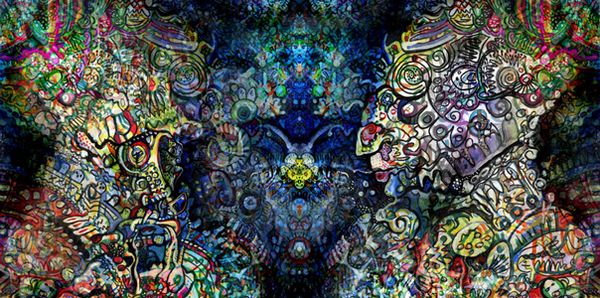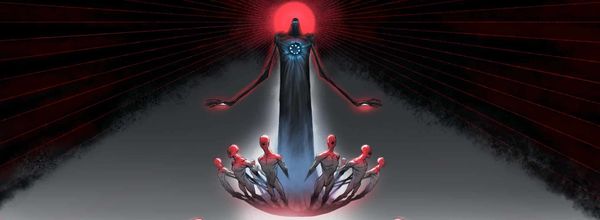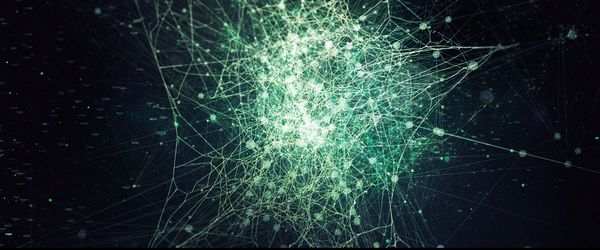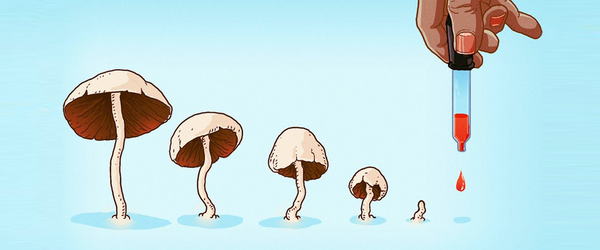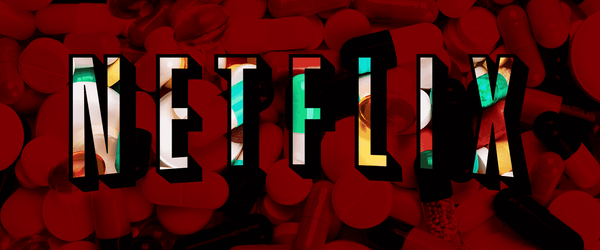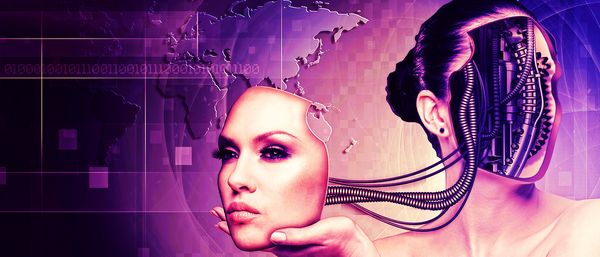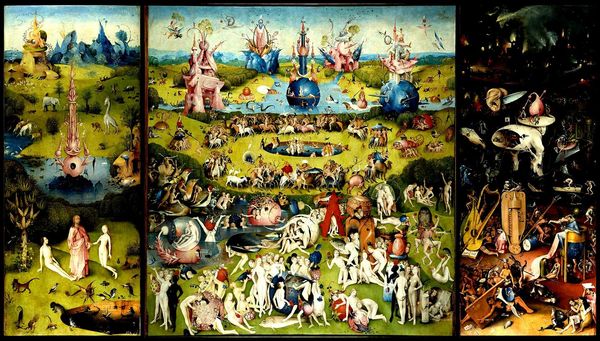This is post 1 of 3 in the series “psychedelictreatise”
A treatise on psychedelics
- A Treatise on Psychedelics Pt. 1/3: The Stigma
- A Treatise on Psychedelics Pt. 2/3: The Mystical Experience
- A Treatise on Psychedelics Pt. 3/3: The Implications
The true student of science neglects nothing and despises nothing that may widen and deepen his knowledge of nature, and if he is wise as well as learned he will hesitate before he applies the term “impossible” to any facts which are widely believed and have been repeatedly observed by men as intelligent and honest as himself. Alfred Russel Wallace, “Are the Phenomena of Spiritualism in Harmony with Science?”Some time ago I was in the right place at the right time by attending the Interdisciplinary Conference on Psychedelic Research in Amsterdam orchestrated by Stichting Open. For those who don’t know, psychedelic is Greek for “manifesting the mind” and is commonly used to indicate consciousness altering plants and chemicals like, to name a few of the more popular, DMT, Psilocybin, LSD, MDMA, Ketamine and Ayahuasca. The conference featured a wonderful mix of researchers, philosophers, health care workers and students that had a genuine interest in the positive power these substances can have on those who dare to enter the psychedelic realm.While I had taken Entheogens before (another word to coin the same category of substances, meaning, “Realizing the Divine within”) as part of my spiritual investigations, I never truly delved deeper into the larger implications of the “ecodelic” insight, which draws our attention to the “Whole” or to the “Gaian Mind”. By attending the conference and my subsequent search for understanding, I ventured deeper into the widespread interconnections between ourselves and the psycho-active ecosystem that surrounds us. I ended up with both wonder and more questions.How do these substances function? How are we to interpret the peculiar trip reports of psychonauts (the brave pioneers who explore the mind space)? Why are such practices criminalized and stigmatized? And what does the war on drugs mean for the continuing evolution of the human species? In this three part series I try to come back to these questions, not in order to give clear and concise answers but rather to open up a space where these ideas can flourish and have polyamorous sex with one another. By the mutually influencing of the cultural, psychological, philosophical and ethnobotanical, I hope to sketch a painting of a utopian possibility.Now why would I want such a thing? Well, it is my sincere belief that the solution for the problems (overpopulation, ecological destruction, cultural purposelessness, global warming, etc.) we face today are not to be found in the techno-scientific-materialistic ideology which gazes upon us from every corner of our modern “democracy”. Instead, it is to be found in a mutation of consciousness, of a global shift towards the spiritual if you will, an information revolution unfiltered by the power practices of our current failing institutions, whether they are economic, religious or scientific. Experimentation with ideas, states of minds and ways of living, and by exploring the “Infinite internal freedom” as the late Timothy Leary used to say, are a necessary component to heal the industrial trauma that keeps intensifying to this very day. Psychedelics can aid us in this imperative of change. Compounds like Ayahuasca, Ibogaine and LSD are used, with great success, as a de-conditioning and de-patterning cure for heroin, cocaine and alcohol addiction. But are all of us not addicted to perpetually consuming the entire planet? Ask yourself this, are you stuck in a pattern where you don’t seem to be able to drop out from?As of now, our cognitive liberties are under attack. The war on drugs is a war on consciousness itself. The very medicine that can help to cure our cultural diseases is criminalized. When we are not free to experiment with different states of mind we are more likely to be hypnotized into submission through mass media and propaganda. Our own nervous system is being held tight in an ideological straight-jacket – our “reality tunnel” is fixed.According to the lecture given at the psychedelic conference by Professor Hanegraaff, we are blinded by cultural prejudices that distort our perception about mind altering and expanding substances. Because of this, the catalystic power of entheogens is still often misunderstood and intentionally suppressed. He distinguishes the following three prejudices that still lie dormant in many of our attitudes today: The Crypto-Protestant prejudice: This prejudice is a remainder of the Theological battle against Paganism. It was based on the belief that mystical experiences, such as the ones often reported after ingesting ‘hallucinogens’, should be the result of divine grace. If someone was receptive enough then such an experience would occur in a ‘natural‘ way, whatever that actually entails. Human intervention, on the other hand, which was seen as a form magical manipulation, was of course a very dangerous thing for institutions like the church to allow (and in the same way for the state in the sixties). It is the same reason today why consumer-capitalism cannot incorporate these (r)evolutionary tools. However, these arguments are relics of a Christian era; based on the belief that no human should have the power to enter the realm of the Spirit themselves. This Knowledge should, instead, be mediated by the priests and church. Yet, it is worth noting that many indigenous and also suppressed cultures strongly disagree (Notice for instance that their name for magic mushrooms is “flesh of the Gods”.)The Idealist prejudice: This prejudice is about the dualistic separation of spirit and matter. How can something that is obviously material, an organic or chemical structure ingested through our bodies, have an effect on anything related to the spiritual? Since matter and spirit are separated, a mystical experience caused by something material cannot be the real thing, it must be some method to cheat ourselves into believing it is a true mystical experience. It must be a hallucination. Yet, there is no way to distinguish a genuine from a fake mystical experience. This worrying about the truthfulness of an experience distracts us from the fact that mystical experiences caused by entheogens still causes all the effects that make up a such an experience (timelessness, oneness, sacredness, contact with the divine etc). This debate is another way to distract ourselves from the experience itself, which can be genuine regardless of the mechanism or method that induced it.The Drug prejudice: This prejudice is based on a reified category versus actual diversity. Political rhetorics uses propaganda to semantically falsify ideas and practices which threatens the state or a common way of living. Mass hysteria about massive change in the 60’s caused them to place psychedelics in Schedule 1, a category of drugs with no positive medical use and a strong tendency for addiction. However, this in no way resembles our scientific evidence. On the contrary, psychedelics don’t cause addiction, criminal syndicates or deaths, yet they can cure depression, cluster headaches, death anxiety and otherwise incurable addictions. The fact that some intoxicants challenge our deeply held assumptions about reality is not reason enough to deny the ever-growing body of evidence that there are big differences between different types of drugs. Especially psychedelics, which, if used with the right intention in the right context, can actually be extremely beneficial for their users and society at large.If we look further than these prejudices however, we see the increased tendency of the state to intervene in the “life”, “health” and “well-being” of its citizens. This is part of what the philosopher Michel Foucault dubbed “biopower” – the use of the life sciences to control and predict living systems. The war on drugs extends this power even further into the realm of consciousness itself. This explains the fact that while the state proclaims they want to reduce the “potential for harm and abuse” they still allow for alcohol and tobacco to be used, drugs that cause much more harm and abuse than any other. Terence Mckenna famously hypothesized that this was the case because drugs like caffeine and sugar reinforce capitalist values in our collective consciousness, whereas psychedelics will do the complete opposite.In the next part of this three part article I will go into the liberating aspects of these neurochemical keys and how they unlock different aspects of our psyche. Check out the Psychedelic Salon podcast and the book Darwin’s Pharmacy by Richard Doyle. Both sources have brought me many new ideas, without which this article would have never seen the light of day. I can not recommend both highly enough. A Final Note on Safety
As we repeatedly stress on HighExistence, psychedelics must be approached with reverence and caution. We believe that in a loving context, psychedelics are powerful medicines with tremendous potential, but there are a number of physical and psychological safety concerns that one should consider before journeying with psychedelics. Please, please do plenty of research, and do not take psychedelics if you have reason to believe that they will not jibe with your personality or particular mental baggage. The Essential Psychedelic Guide on Erowid is an exceptional free resource, and we recommend reading it, especially the section on ‘Psychedelic Safety,’ before ever dabbling in these substances. Take care, and happy tripping. : )
